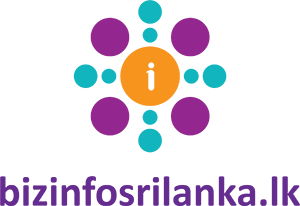Japan faces steep hurdles to boosting medical device output
on: April 15 ,2020 In: Developing News

Concerns are growing over Japan's ability to boost production of medical equipment necessary for treating people with severe coronavirus symptoms.
The government has sought support from medical equipment makers as well as automakers and electronics makers for increasing the production of such medical devices as Japan's COVID-19 caseload surges.
But companies outside the medical industry face severe limitations since manufacturing medical devices requires a high degree of safety.
Major medical device supplier Terumo Corp. has started boosting production of artificial lungs called extracorporeal membrane oxygenation, or ECMO, devices, which replace the functions of lungs in patients suffering from severe COVID-19 symptoms.
ECMO devices oxygenate blood taken from patients with severe respiratory failure and pump it back into the body.
Terumo, which holds a 70 share of the Japanese ECMO market, is operating its plant in Shizuoka Prefecture seven days a week.
The company plans to make well over 100 units in the following months, equivalent to its normal production for a full year.
Medical equipment company Nipro Corp., which makes parts used in ECMO machines, is seeing a surge in the number of inquiries about such products from home and abroad.
Meanwhile, Prime Minister Shinzo Abe says the government has secured 15,000 artificial ventilators to treat COVID-19 patients and aims to increase the number to 20,000.
But the greater part of ventilators used in Japan are imported, and most domestic makers are small and midsize companies. Japan thus has little scope for increasing production of such devices, according to industry sources.
Sanko Manufacturing Co., based in the city of Saitama, and Koken Medical Co., headquartered in Tokyo, have started increasing production of anesthesia and ambulance ventilators, respectively. But they say their products cannot be used in intensive care units.
An official of Nihon Kohden Corp., which imports ventilators designed for ICUs, said that "as demand (for ventilators) is growing globally, we are not sure whether we will be able to secure sufficient supplies from this point."
In the United States, major automakers such as General Motors Co. have said that they will manufacture ventilators.
The Japanese government has sought support from businesses in various industrial sectors to join forces to boost production of such medical devices.
The government earmarked ¥8.8 billion in the emergency economic stimulus package adopted last week to finance subsidies for increasing medical equipment output.
Toyota Motor Corp. plans to provide its know-how on improving production efficiency to makers of medical equipment.
Despite hopes for Toyota's possible entry into the production of ventilators, President Akio Toyoda remains cautious, saying it is not easy to manufacture products that are directly related to people's lives.
Hiroaki Nakanishi, chairman of Keidanren (the Japan Business Federation) and chairman of electronics and machinery giant Hitachi Ltd., has said that "companies outside the medical industry cannot easily make (medical devices) due to regulations" aimed at guaranteeing product quality and safety.
On cross-industry cooperation, an official at a small medical equipment manufacturer said that "although we have received offers to send engineers, it is difficult to entrust such people (without experience) with manufacturing (medical products)."
Source: japantimes.co.jp – 14th April 2020
Image by fernando zhiminaicela from Pixabay



